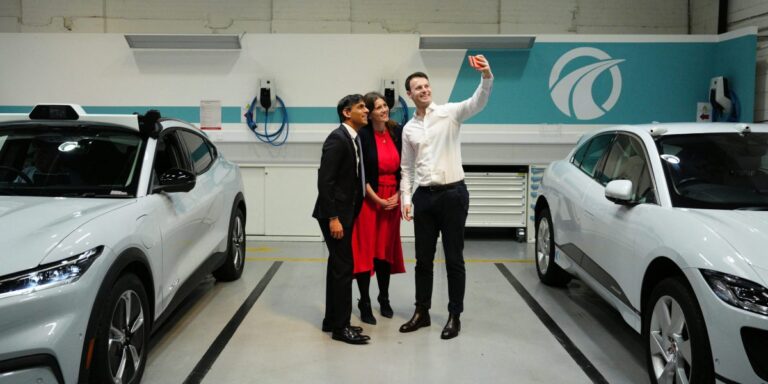
Microsoft’s plan to open a new AI center in London is a huge support for the UK as a global leader in AI. But I wonder if this is good news in the long run.
The UK has demonstrated time and time again that some of the best AI skills in the world are here. The talent pool we have in this country, the level of research and development present in our academic institutions and the (generally) stable economic conditions of the UK have, for decades, made our island nation a very attractive location for tech’s big hitters. lay down roots.
That’s why American companies come here, as well as companies from Japan, China, South Korea, Germany and Singapore. And recent history highlights the true pedigree we have in process and software design.
When Britain built its own behemoths
In a recent interview, Chancellor of the Exchequer Jeremy Hunt declared his desire to build a “British Microsoft”, warning that such an effort would take a decade to come to fruition. But it wouldn’t be the first time the UK has produced its own tech titan.
I previously worked for over 20 years at Arm, starting in the 1990s. During that time the company grew from a small spin-off company (named Acorn Computers) in Cambridge to a global technology giant. It has arguably become the largest processing company in the world. This has been made possible thanks to the talents of Cambridge, Oxford, UCL, Southampton, Manchester and many other UK academic institutions. We were the world leaders.
Another watershed moment for UK AI was the creation of DeepMind in 2010. It was one of the most exciting AI companies in the world. But DeepMind was then bought by Google in 2014 for $400 million (a huge number at the time).
So why, with all this talent, does our focus constantly seem to be on the movement of foreign companies and capital, rather than focusing on creating and sustaining our own tech companies and turning them into players? global they could become?
Our announcement that Microsoft is becoming more integrated into the British tech fabric surely raises the question of why, as a nation, we haven’t cracked the code to creating our own tech heavyweights.
Our universities are fully capable of creating spin-off companies, the financing environment is conducive to fundraising, and early-stage venture capital is accessible. However, the capital needed for these companies to continue to grow and be able to compete with the best technology companies in the world simply does not exist. This is a challenge that the UK government has yet to meet. We need to ensure UK startups have the ability to grow and stay in the UK.
Today’s capital-talent matrix
THE colossal funding round raised by British self-driving car technology startup Wayve is a perfect example of this momentous tipping point question in action. The company recently secured $1.05 billion (£840 million) in funding led by Japanese firm SoftBank, with Microsoft and Nvidia also participating. It is the largest known investment to date in an AI company in the UK – and Europe more widely – and has once again been driven by foreign capital.
It has almost become institutionalized over the last decade that UK startups are encouraged to have a presence in the US simply to access growing capital. The Government needs to look carefully at what the incentives are, or even what the strategy is, for UK technology companies, so that the UK stock market can benefit from the revenue they generate when they actually grow. We need an industrial strategy that more effectively supports and builds the credentials and potential of the UK’s tech startups.
With the plethora of tech talent that London and the UK have to offer and the strides our tech community has made over the past 20 years, the question we should be asking is whether companies like Microsoft are here to build or to plunder. Do they intend to introduce another layer to the UK tech community in and around London, or do they plan to seek out more talent and gradually send that talent (or the fruits of their labor) back to the US? United ?
Currently, there are very few places in the world where top AI talent can be found. But if big, non-UK tech companies take over everything, what’s left for UK companies? We need these talented AI engineers coming from our universities (heavily subsidized by UK taxpayers) building the next Arm, DeepMind, Google or Microsoft.
This is also a self-perpetuating cycle, as large companies not only directly employ top talent, but also attract an ecosystem of supplier companies, and a percentage of these experienced employees then form new companies. Having world-renowned local businesses has a huge positive impact nationally, beyond that market cap. Although the Chancellor has been more vocal about the UK’s potential to create such businesses, her words must be translated into concrete actions.
But ultimately we have to ask ourselves: Are we satisfied playing a supporting role to America’s existing tech beasts? Before we declare victory, as a tech community and as a nation, the UK should think about what success actually looks like and what we are ultimately aiming for.
Noel Hurley is the CEO of Literal Labs and former Vice President of Arm.
More essential comments published by Fortune:
The opinions expressed in comments on Fortune.com are solely the opinions of the authors and do not necessarily reflect the opinions and beliefs of Fortune.


